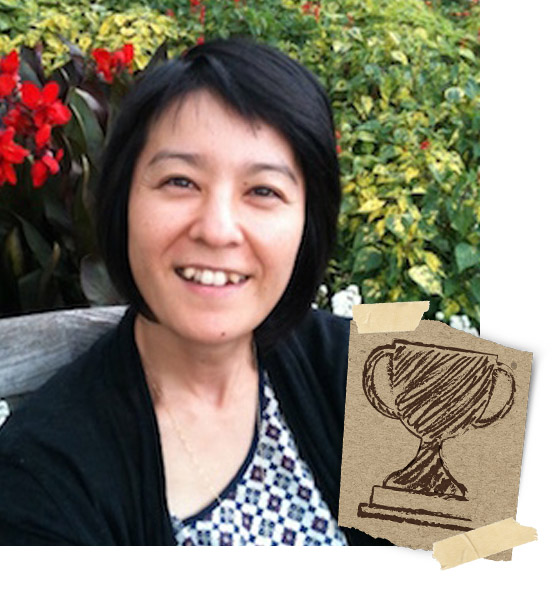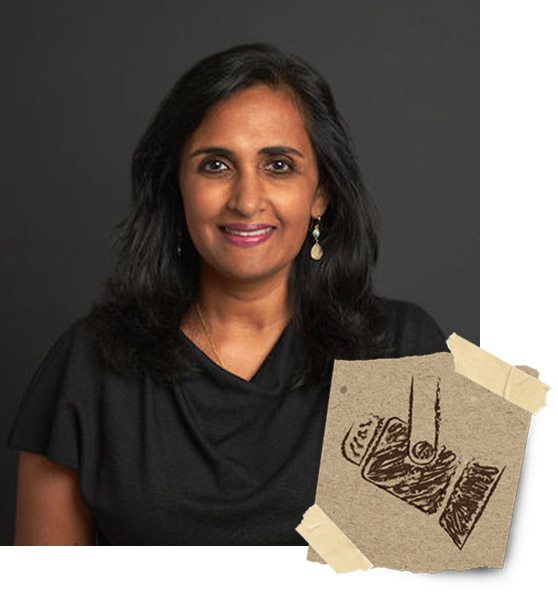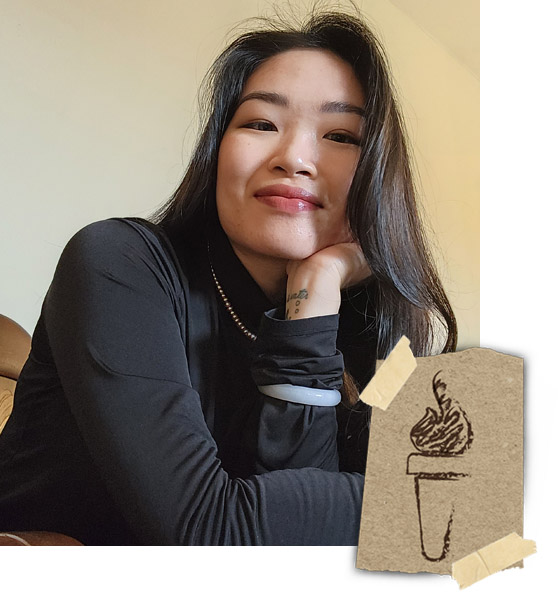Access Champion: Dr. Naoko Wake
May 16, 2025 - Emily Jodway
 Dr. Naoko Wake, Professor of History at Michigan State University, is our Access Champion for the month of May. Throughout May, we are celebrating Asian Pacific Islander Desi American (APIDA) Heritage Month and the history and culture of Asian Americans in the United States. Wake is a historian of race, gender, sexuality, and disability in the 20th-century United States and the Pacific Rim. Her work examines memory, identity, and activism in Asian American histories to illuminate how marginalized individuals, families, and communities interact with different social and cultural institutions.
Dr. Naoko Wake, Professor of History at Michigan State University, is our Access Champion for the month of May. Throughout May, we are celebrating Asian Pacific Islander Desi American (APIDA) Heritage Month and the history and culture of Asian Americans in the United States. Wake is a historian of race, gender, sexuality, and disability in the 20th-century United States and the Pacific Rim. Her work examines memory, identity, and activism in Asian American histories to illuminate how marginalized individuals, families, and communities interact with different social and cultural institutions.
Wake is a native of Japan, and received her bachelor’s and master’s degrees in Education from Kyoto University. It was while she was working on her dissertation that she realized moving to the United States to continue her studies would make more sense for the type of archival research she was conducting. Wake was studying the history of psychiatry and psychology, and was particularly interested in the American psychiatrist Harry Stack Sullivan and his understanding of mental illness based on his examination of interpersonal relationships. She began to broaden her field of study into the history of American medicine, society, and culture.
“I was so interested in how in American society, which I understood to be very individualistic compared to many Asian cultures that I know of, would be so interested in non-individual aspect like interpersonal relations and thinking of that aspect as a basis for understanding mental illness,” she said.
It was while diving into more research on Sullivan that she began to realize the importance of understanding history in a global context and from the perspective of minoritized groups, who are not often given a voice in society and face some of the greatest hardships. Many of Sullivan’s patients were living as sexual minorities in a time when being gay was considered a mental illness, and were diagnosed as mentally sick on the basis of their sexual identities.
“That really got me interested in the experiences of the powerless people who didn’t really have an equal standing in broader social context, and that got me interested in Asian American experiences, too, which was also related to my personal experiences of being an Asian woman in the United States.”
Wake hadn’t thought about herself as a minority until she began living in the United States and experiencing a great culture shock. She had moved from Kyoto, a large city in Japan with a rich cultural history, to the cornfields and highways of Indiana. “I was exposed to the American notion of race and experiences of racism, and I started to wonder if there are others who came before me who have had similar experiences,” she explained.
Based on her bilingual and bicultural upbringing and background, Wake began to study the history of Asian Americans, deepening her understanding of socially minoritized groups and their experiences in history. This became the basis for her second book, which was developed from conversations with Japanese American and Korean American survivors of the atomic bombs dropped in Hiroshima and Nagasaki in 1945. For this book, Wake conducted interviews with survivors and did extensive archival work, both from large, state and university archives as well as small, community-centered archives managed by local APIDA volunteers. She found that even with the sources available to her at these archives, not much information was available about the history of these US citizen-survivors, so she set out to conduct the interviews herself, with survivors, family members, and community activists.
“It was such an honor to be able to meet with those survivors and learn from what they were willing to tell me, and for many people, this was the first time they had even talked about their experiences of what it was like to be attacked by their own government,” she said. “They really brought me a sense of connection; it was such a huge gratification as a historian, that in addition to being able to learn from them, I was able to personally connect with them, and I felt that they were giving me an incredible gift by sharing their stories.”
Her current project is looking at the history of Asian Americans living with disabilities, both physical and mental. Wake hopes to continue telling the stories of minoritized groups and their experiences and help to create a culture of empathy and understanding by expanding on the history of these individuals. “I think it’s useful for people to understand history from a more personal or micro level of issues, rather than only from a large-scale level of events,” she explained. One of the ways she is incorporating this in the classroom is through an oral history project in her Asian American history class. Students will conduct interviews with APIDA individuals in the community that will be added to the MSU archives as a source of historical records for future scholars.
“APIDA people and their experiences and histories are not well documented, especially in the Midwest,” Wake said. “I think it’s really exciting for students to contribute to the archival history aspect of learning in my class, because they know that it’s not just for a paper they are writing.”
During APIDA Heritage Month, Wake hopes that individuals will take the time to learn more about APIDA culture and expand their empathy to those who have unique and different experiences from their own. On campus, students can participate in a number of different events, many sponsored by the different Asian American student organizations on campus. Wake herself is the faculty advisor for the Asian Pacific American Graduate Alliance.
“The number of APIDA identified graduate students is small, and we are a big campus,” she said. “So they appreciate these gatherings, because they can get together and maybe go to an Asian restaurant to eat the food that they like, talk about their research, and exchange information about the support systems and resources they know of on campus.”
“We are a community that includes more than one personal perspective, and the more perspectives that we can recognize as part of a community, the broader and better views that we can have. I think APIDA Heritage Month is a really important contributing factor to a broader and more accurate view of who we are as a truly collective community.”
Honorees’ views are their own and do not necessarily reflect those of the College of Social Science.
Read more:

Access Spotlight
Alumni
Dr. Usha Tummala-Narra
Dr. Usha Tummala-Narra is a professor of Counseling, Developmental and Educational Psychology at Boston College. Her research focuses on immigration and trauma, and she serves as an associate editor of the Asian American Journal of Psychology.

Access Torch
Student
Sylvia Lin
Sylvia Lin is a fourth-year PhD student in Human Development and Family Studies, whose research focuses on ethnic-racial identity development among Asian American youth.

Access Matters
We strive to cultivate an inclusive and welcoming college environment that celebrates a diversity of people, ideas, and perspectives.

